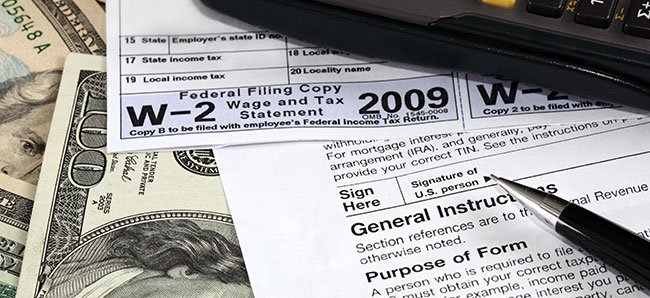Regardless of your opinion on the The Protecting Americans from Tax Hikes (PATH) Act of 2015, there is one thing you won’t like about this Act. It requires all employers (including small businesses) to send 1099’s and W-2’s no later than January 31st, 2017 to both their employees and the feds.
In 2015 and prior years, employers had one month (i.e. February 28th for paper filers) to two months (i.e. March 31st for e-filers) extra to double-check their numbers and send the 1099’s and W-2’s to the IRS and W-2’s and Social Security Administration respectively. This extra time permitted businesses to obtain a proper accounting from their CPA’s, and submit revisions if necessary. However, January 31st has always been the deadline for businesses to send this information to their employees.
What is a 1099?
If you’re an owner of a small business, you really owe it to yourself to find out what a 1099 is and how it applies to your business. Not issuing 1099’s when required can result in fees and penalties. More importantly, your business loses out on important business expense deductions by not issuing 1099’s. See the IRS Website on Form 1099-MISC for more information. The quick summary is, you are required to issue a 1099 to anyone that you pay:
- (1) at least $10 in royalties or broker payments in lieu of dividends or tax-exempt interest
- (2) or at least $600 in a wide array of activities, including rents and services performed by non-employees.
1099’s are particularly difficult because you cannot simply download one off the Internet. You have to use the IRS’ special paper (which contains magnetic ink). You can order a packet of 1099’s from the IRS or a local office supply store. Finally, there are online services such as 1099tax.com that will help you properly file 1099’s and e-file the 1099’s to the IRS.
What is a W-2?
The IRS Form W-2, Wage and Tax Statement must be filed for every employee by an employer who is “engaged in a trade or business who pays remuneration, including noncash payments of $600 or more for the year (all amounts if any income, social security, or Medicare tax was withheld)“.
If you have a payroll service, they can produce W-2’s on your behalf. A bookkeeper or accountant can also make sure that W-2’s are properly created and submitted. In either case, be sure to check that this service is being performed. Waiting could cost you.
Have You Hired an Accountant Yet?
A good business accountant is absolutely invaluable to your business. Not only are they trained to deal with the detailed IRS rules, deadlines and forms, but they can help give you peace-of-mind that your financials and taxes are being handled properly and legally. Just remember that accountants are not lawyers.
Law 4 Small Business, P.C. (L4SB) A little law now can save a lot later.

